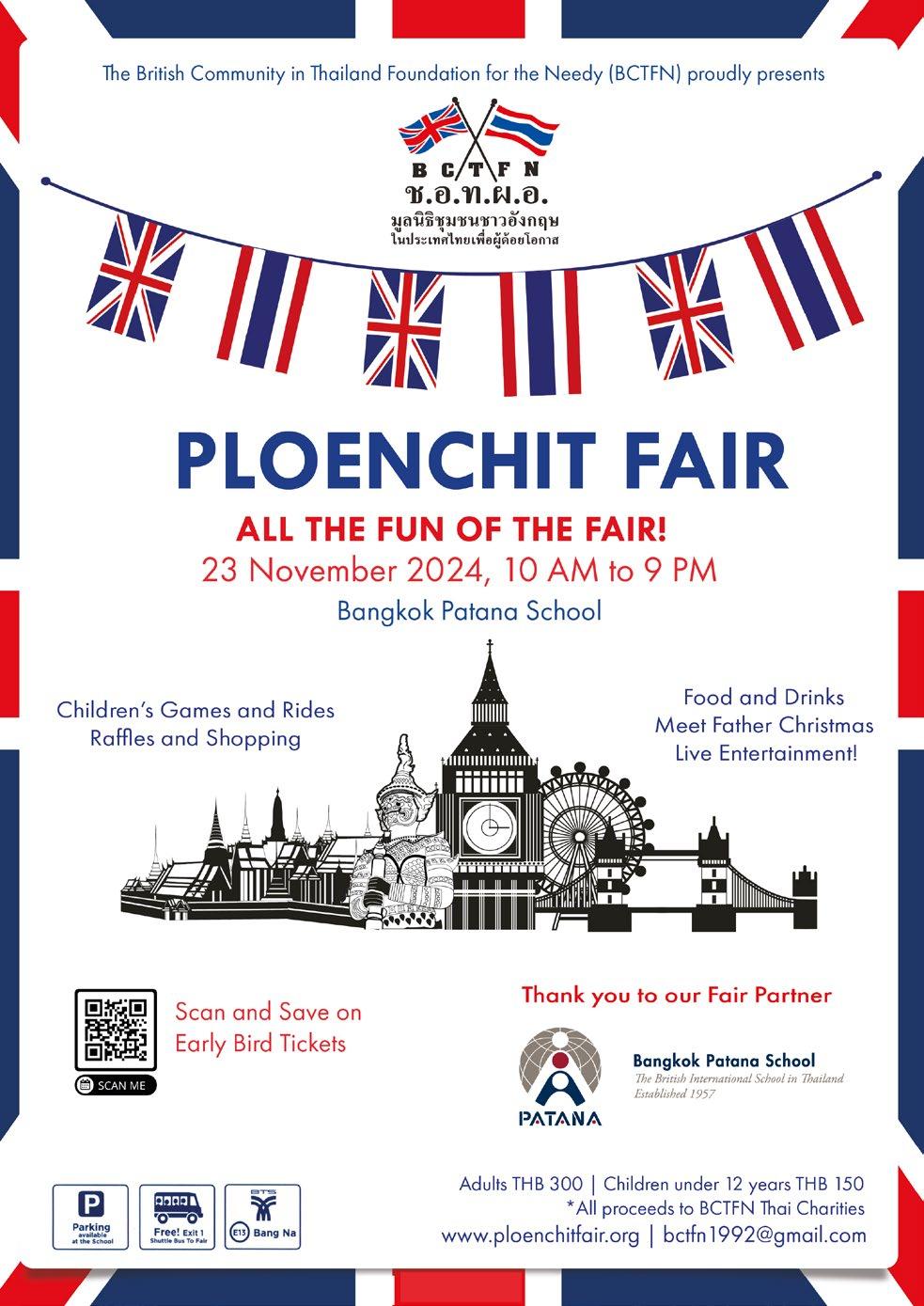
By Carly Peart




By Carly Peart


Carly Peart, Cross Campus Vice Principal, Professional Learning
Likemany schools, Bangkok Patana takes recruitment very seriously. Senior leaders ensure we recruit the best educators and once staff are here, we don’t sit back on our laurels. We ensure that we continue to provide ongoing opportunities for our staff to learn, better themselves and improve their pedagogy and professional practice. At Patana, we call that CPL: Continuous Professional Development.
Investing in CPL is crucial for several reasons. The field of education is continually evolving, with new research, technologies and methodologies emerging regularly. One specific example we are all becoming acutely aware of, whether we want to or not, is the advance in AI technology. This has posed huge questions for educators; How will AI impact on the role of school? How will it impact our students and how do we ultimately prepare them for that?
This is just one example of why our educators must stay up to date with their own professional knowledge and practice. CPL is intended to foster a culture of continuous improvement among our staff, promoting reflective practice, encouraging teachers to evaluate their teaching methods and seek innovative ways to enhance student learning. Additionally, it also helps to boost staff morale and job satisfaction. Educators who feel supported and valued are more likely to stay motivated and committed to their roles, benefitting the entire school community.
We offer a comprehensive range of CPL opportunities tailored to our staff’s diverse needs. Below is a snippet of some of the many opportunities we provide:
• Dedicated days throughout the year that provide opportunities for staff to participate in workshops and learn alongside visiting experts.
• This year, we had the privilege of welcoming and working alongside Andrew Mowat (AI), Matthew Savage (Understanding Data) and Peter Forneck (Fundamental Movement) who are all experts in their fields.
• Optional short bursts of learning, typically led by teachers for teachers, allowing colleagues to share their expertise and best practices.

• Sessions are flexible and cover a wide range of topics, from classroom management techniques to integrating technology in teaching.
• Providing staff the opportunity to connect with the broader educational community and stay informed about regional and global trends.
• Patana staff often present at such conferences. Recent examples include Glenn Malcolm presenting at the AI & the Future of Education conference, and Brian Taylor who presented at the Data in Schools conference.
• Through our membership with FOBISIA, we have access to a diverse range of workshops for all subject areas. These workshops bring together educators who share similar roles or responsibilities for focused, role-specific training and discussions.
• Where possible, we also host these events ourselves, with a recent example being our Secondary English team who ran an event for nearly 40 educators back in September.
• Many of our staff engage in online courses, including accessing a range of webinars organised by FOBISIA, which are run by staff across the region.
• We also pride ourselves on the number of staff who choose to take on postgraduate learning alongside their full-time teaching position. At any point in time, we have a large number of staff undertaking a Masters course, a Doctorate or an NPQ (National Professional Qualification).
• Later on this month, Patana will act as a host for a cohort of staff beginning their NPQLT course (National Professional Qualification for Leading Teaching).
• Our excellent facilities, like the Conference Centre, attract notable speakers for workshops and conferences. These events are open to external participants, but
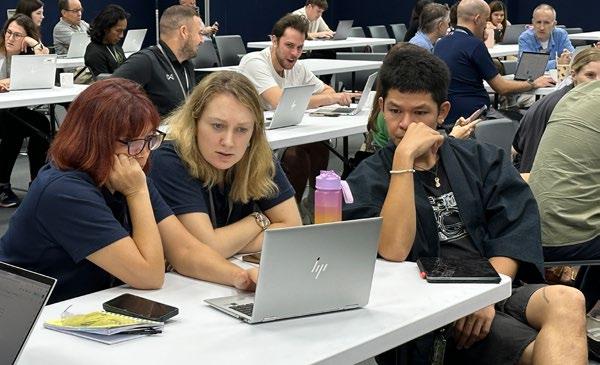
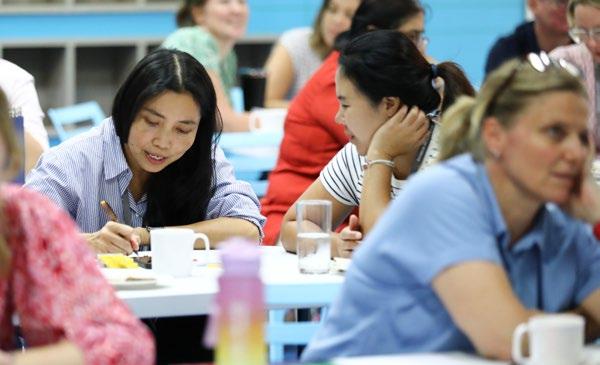
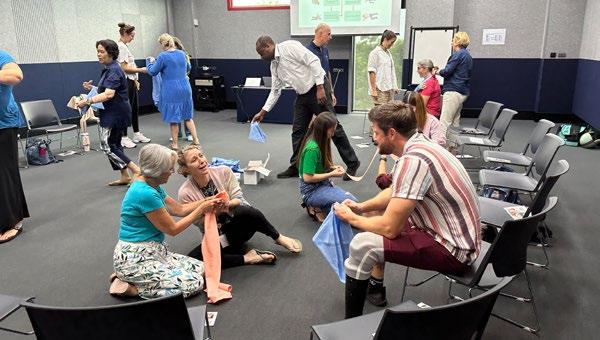
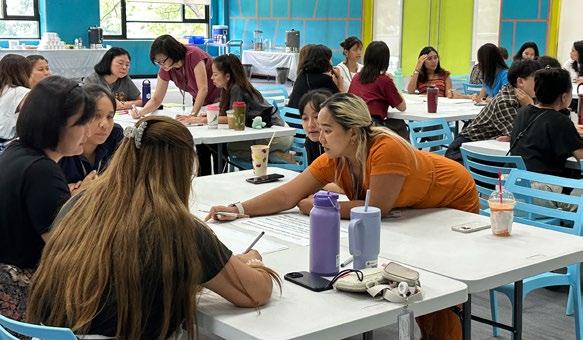
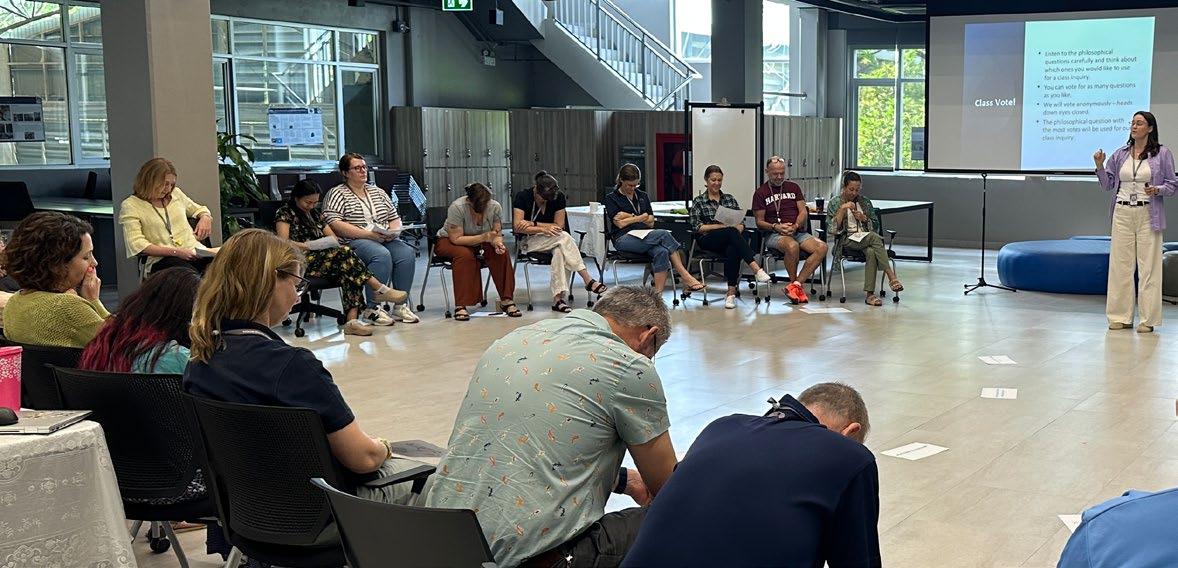
also provide opportunities for our own staff to gain valuable insights from experts.
• Recent speakers include Mr P ICT, Dylan Wiliam, Kath Murdoch and Tom Sherrington. Soon, Zaretta Hammond, known for ‘Culturally Responsive Teaching,’ will join us.
Professional development is not a one-time event or a
box to be checked. It is an ongoing, integral part of our school culture. By offering a diverse range of CPL opportunities, we ensure that our educators are equipped to provide the highest quality education to our students. When our teachers grow, our students thrive.
Follow us on social media @patanacpl to keep up-todate with all our CPL offerings.
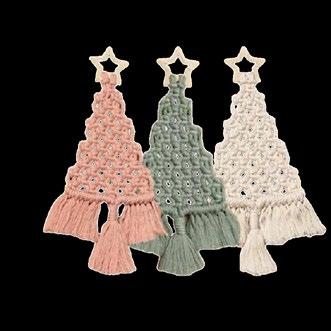
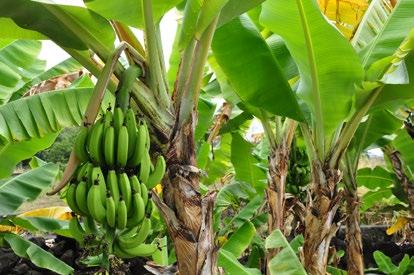
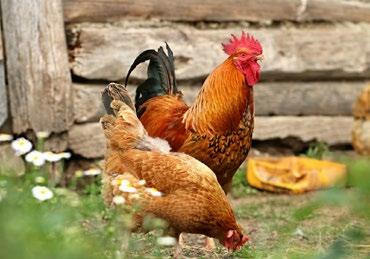
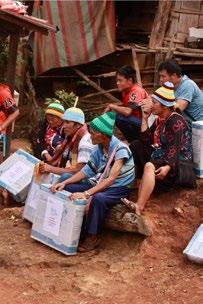

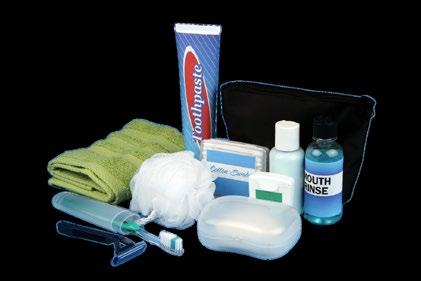
Pick a Sponsorship Package Receive
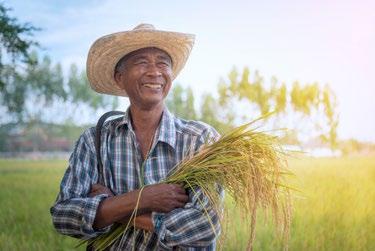
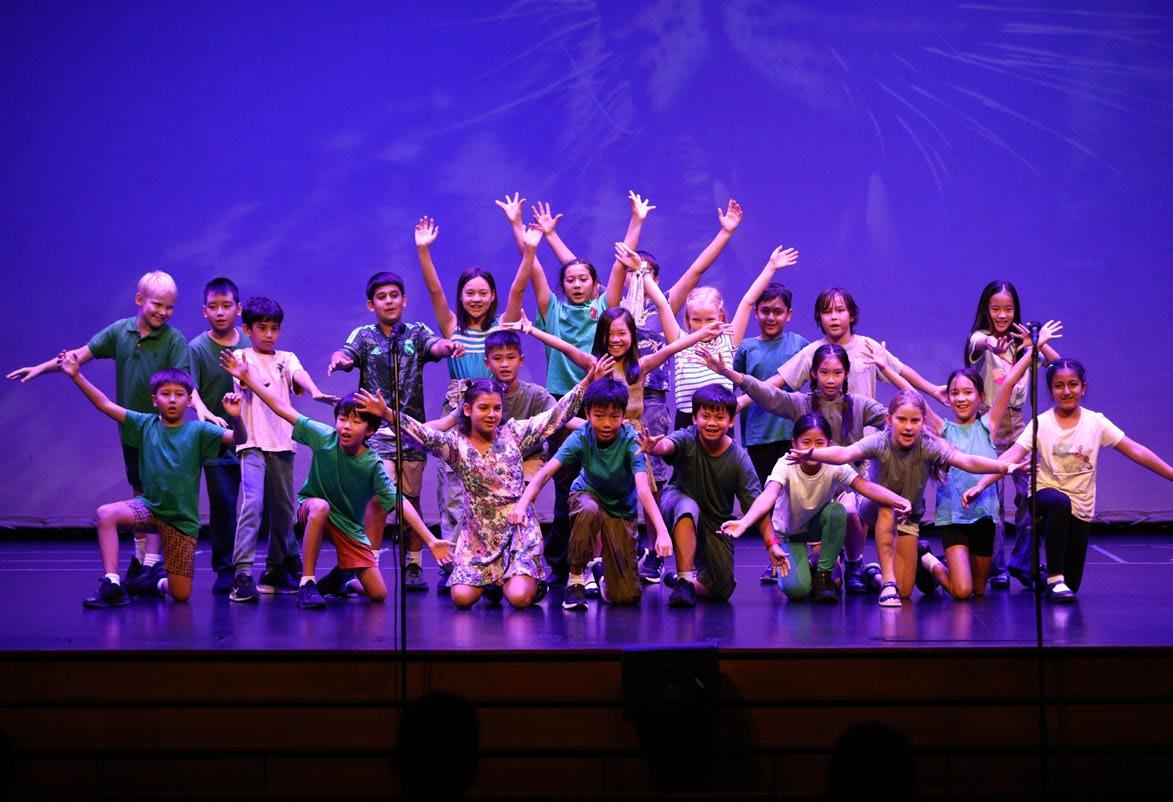
We Need to talk!
Educators and parents have long recognised the important role strong speaking and listening skills play in children’s development. However, for students in Key Stage 2, these skills can be given less emphasis within some schools’ planning, as other Literacy components and subject areas take priority. That’s why it was encouraging to see the recent report by the UK’s Oracy Education Committee, We Need to Talk, bring renewed attention to the importance of explicit oracy instruction in schools. The report calls for oracy to be considered as the “fourth R” - alongside reading, writing and arithmetic - as a fundamental skill necessary for young people to thrive and achieve their potential.
The impact of supporting our children to communicate with clarity and confidence is considerable. Linked to employability and well-being, effective communication skills are vital for personal and professional success. Strong communication allows children to become effective team members, confident speakers, and empathetic listeners—qualities that are increasingly significant in a world transformed by technology and the social challenges of the COVID-19 pandemic. To target this, we intentionally integrate oracy across the curriculum through both direct
and indirect approaches, including specific vocabulary teaching and strategies such as ‘Say it Again Better’. In PSHE, children learn about ‘active listening’: what that means and looks like and why it is important. In humanities and science, children may be involved in debates on thought-provoking topics such as ‘Is space tourism ethical?’ Being given a viewpoint to represent adds an extra dimension to the learning, as children may have to argue a point they disagree with. Planning and building their debates in groups develops valuable language, self-expression, critical thinking and collaboration skills.
We are fortunate to have a number of large auditorium areas including the Theatre, Black Box, Primary Hall and Sports Hall, which provide opportunities for children to practice public speaking, learn to articulate their thoughts, and build confidence by presenting to real audiences. Year 5 students recently gained hands-on experience in oracy through our annual Poetry Festival. The process of studying poetry, writing poems, selecting a favourite, creating movement, appropriate voice, tone and pitch, then rehearsing together culminated in each child performing on stage to a Year 6 and parental audience. For those speaking on stage in the Theatre for the first time, rehears-
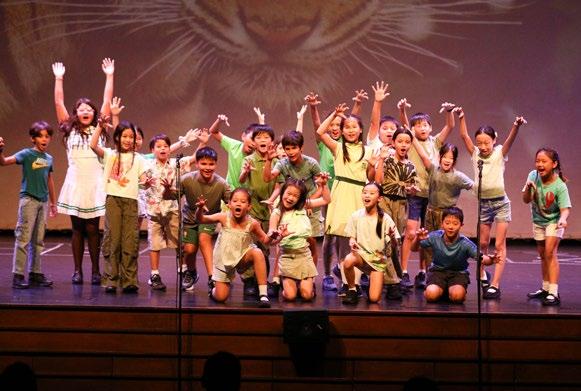
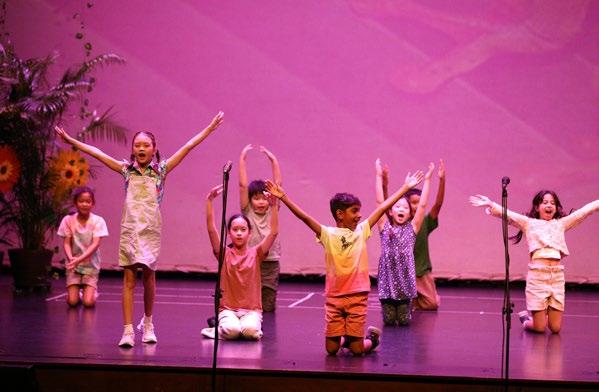


als were a little nerve-wracking - I’m sure most adults can empathise with this - but, working as a team, they supported one another and no nerves were visible during the performances. Not only did the children speak clearly, they performed with confidence and pride and enjoyed themselves a great deal!
Our mission is to ‘develop global citizens who shape their world through independence, empathy, creativity,
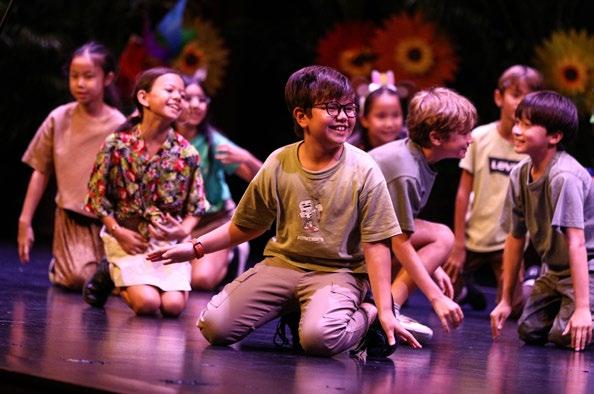
and critical thinking.’ Building a solid foundation in communication skills is central to achieving this goal. We encourage families to nurture these skills at home too: engage in meaningful conversations, listen actively, and allow children to express their ideas. By working together, we can help our students communicate confidently and meaningfully, empowering them to shape their world.
So, let’s get talking!
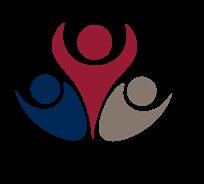
Rosaleen (Rose ) Knox , Year 13
Students across multiple international schools in Bangkok participated in a Rube Goldberg Machine competition; using a series of components, they were tasked with building an overly complicated contraption to perform a simple task. Overall, 67% of the attendees were girls, showcasing the growing diversity in engineering. As a CAT group aiming to support women in all aspects of STEM, this weekend’s competition was a chance for girls and boys to compete equally and showcase their skills in engineering openly.
A special thanks to Dr Nattawut Thepayasuwan for judging and providing us with an inspiring speech about achieving our goals. SWENext hopes to hold events like this in the future to provide equal opportunities for both girls and boys to develop and further their building abilities.
Congratulations to both teams, they displayed an exemplary understanding of physics and construction. See you all next year!
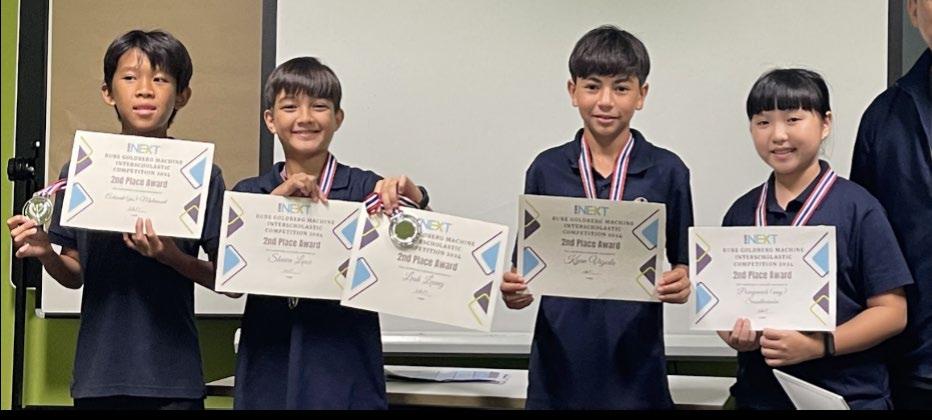
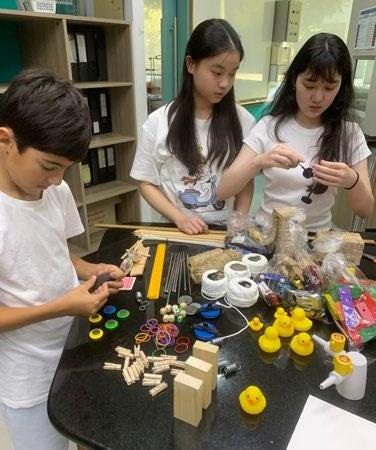



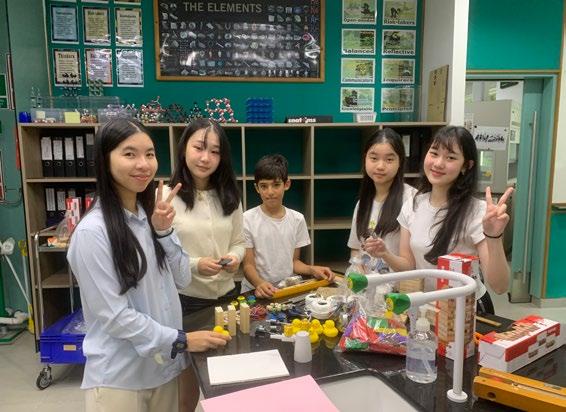

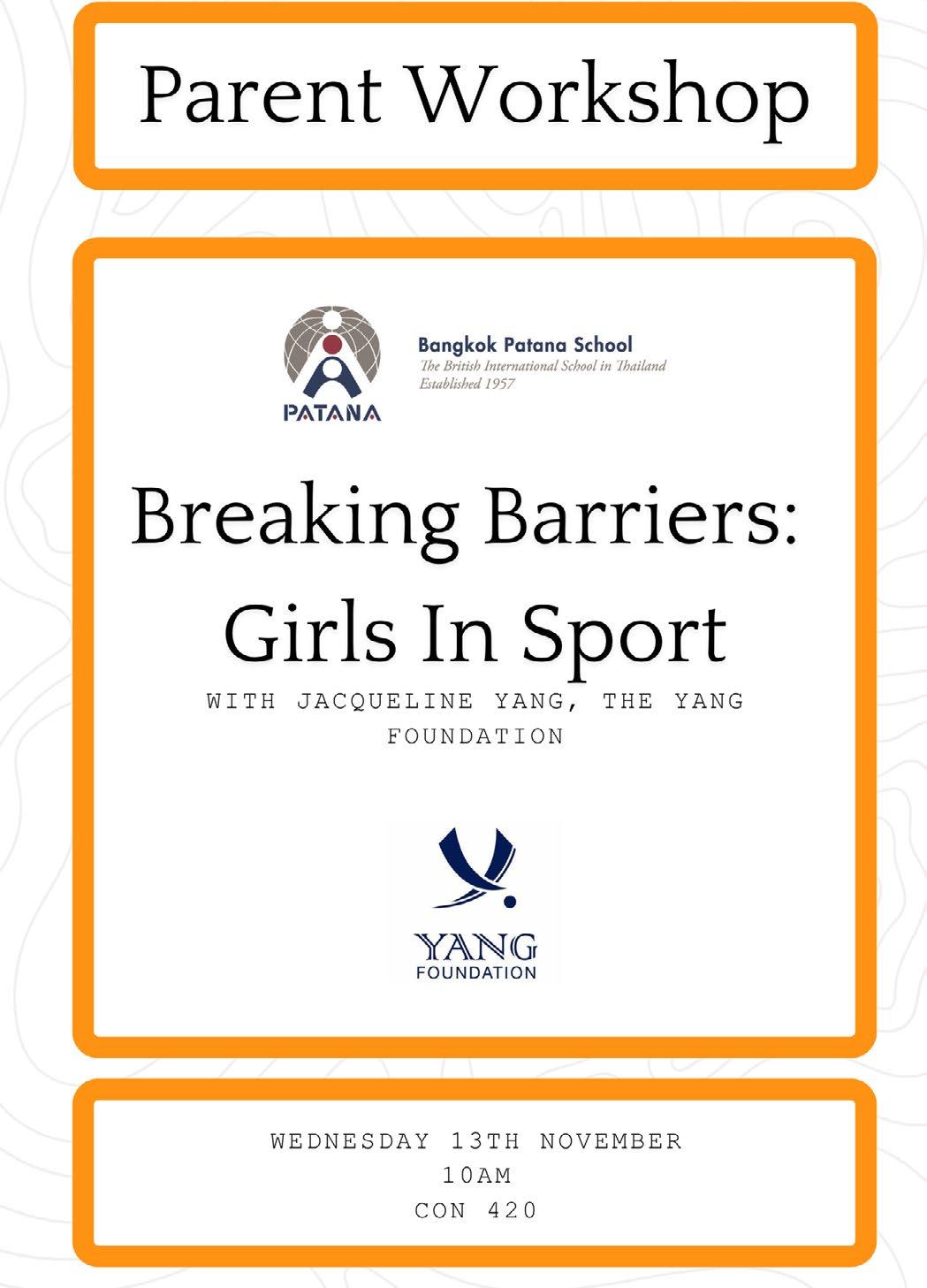

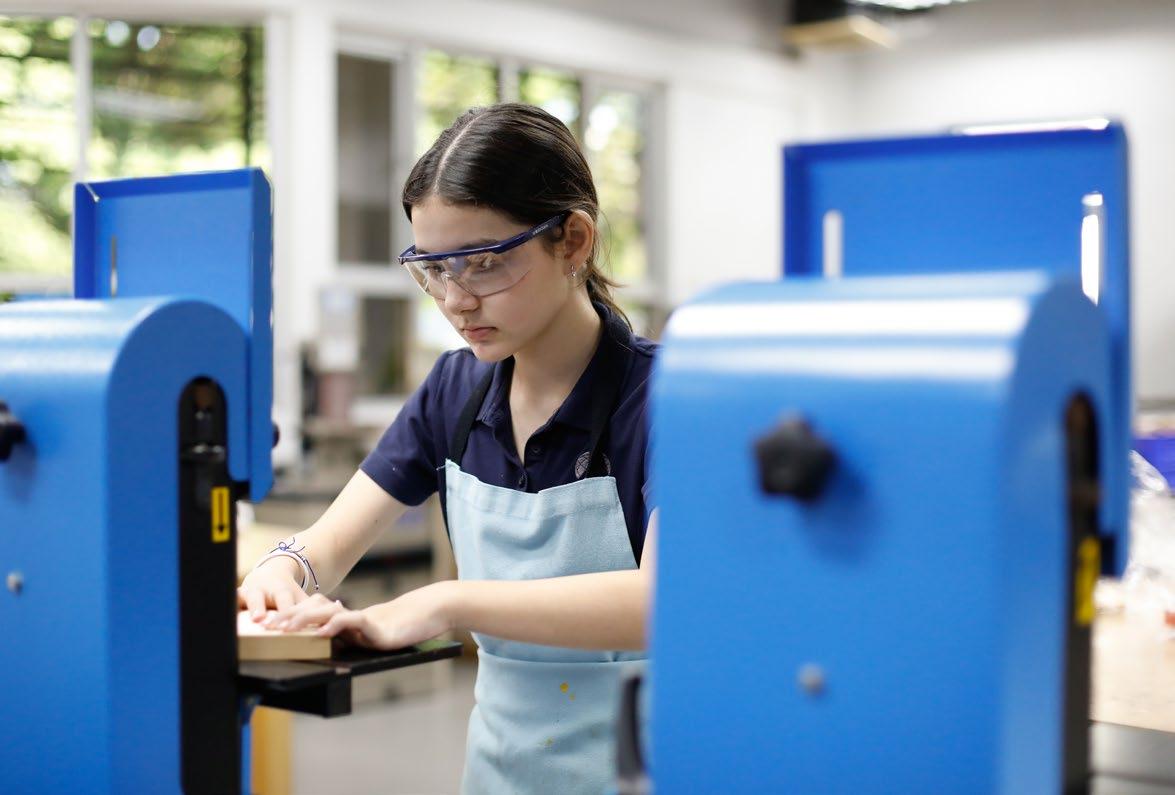
Design + technology - keePing uP to Date with new anD
Richard Smith, Head of Faculty Design + Technology
New and emerging technologies are increasingly vital in Design and Technology education at Bangkok Patana School, shaping how students learn and apply their knowledge.
By enhancing creativity, fostering collaboration and developing critical skills, these technologies not only enrich the learning experience but also equip students with the tools they need to thrive in an increasingly complex and technologically driven world.
At the fore front of our teaching and our facilities in D+T is a CAD/CAM suite (computer aided design and manufacturing equipment), incorporating 3D Printers, Laser Cutters and CNC machines. Students are introduced to these technologies in Key Stage 3 and at Key Stage 4 and IB students use them independently as a design and manufacturing tool, taking rapid prototyping and product development to new limits.
New and emerging technologies play a crucial role in Design and Technology education for several reasons:
• Familiarity with the latest technologies ensures that students are well-prepared for the workforce, align-
ing their skills with industry demands.
• Exposure to modern tools and processes equips students with relevant skills needed in fields such as engineering, product design, and manufacturing.
• Emerging technologies encourage students to experiment with new ideas and solutions, fostering a culture of creativity. Technologies like 3D printing allow students to quickly create and test prototypes, making the design process more dynamic, allowing for fluid iterative development of ideas. Engaging with cutting-edge technologies enhances critical thinking as students tackle challenges in their designs and processes. Students develop essential digital skills in preparation for further education and the world of work.
New technologies often require knowledge from various disciplines (STEM), helping students see the connections between different fields and how they inform design, promoting collaborative projects, teaching students the importance of teamwork and effective communication. Digital platforms facilitate collaboration with peers globally, exposing students to diverse perspectives and ideas.

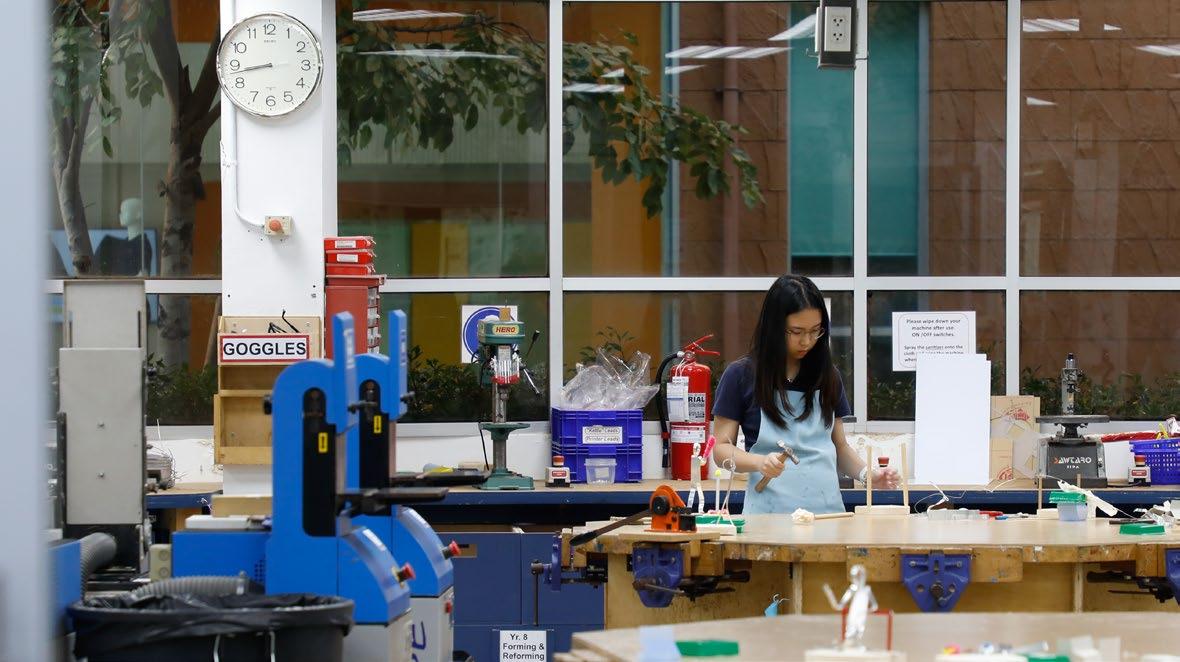
The ability to use computer aided design and manufacture allows students to quickly realise creative, often complex designs with close tolerances, unable to be easily produced using traditional craft skills, revolutionising the way products are conceptualised, prototyped and manufactured.
Through using new and emerging technologies, we are
proud to say that our IGCSE and IB students are able to generate fully tested and developed working prototype designs that are close to commercial manufacture. Returning alumni students are quick to tell us how grateful they are for our hi-tech facilities and experienced staff, giving them the all-important edge on students from other schools across the world.
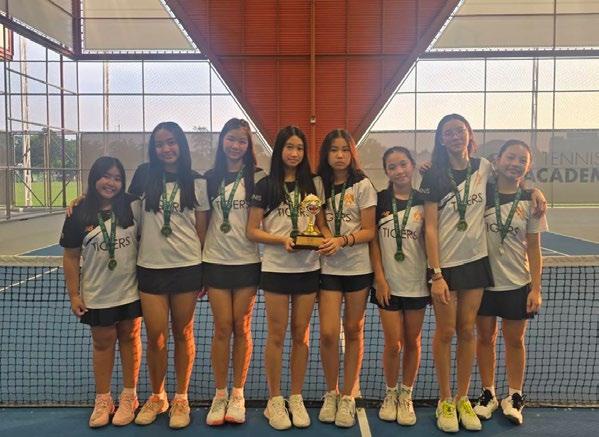

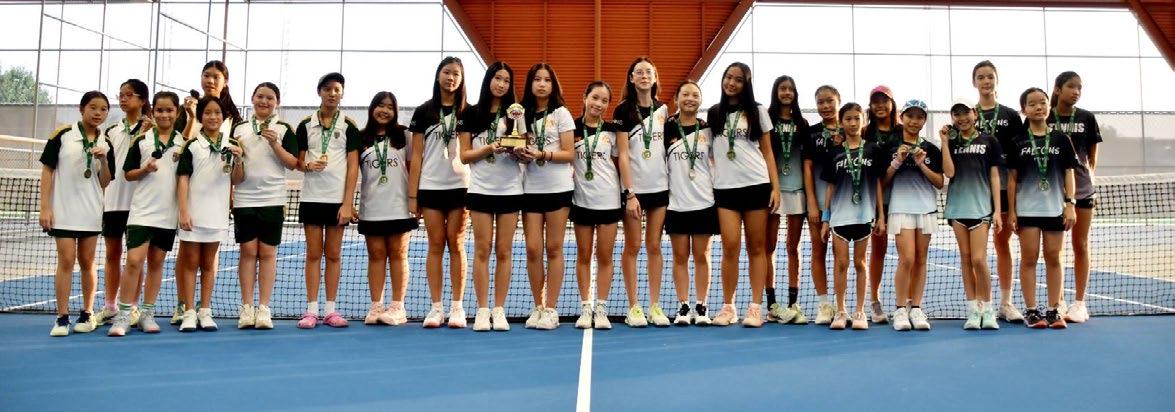
The
U14 tennis season concluded last Saturday with the end of season BMAC tournament, which although sanctioned under the BMAC conference umbrella is almost a hybrid tournament as three of the six schools taking part are from the BISA conference.
Bangkok Patana hosted the Girls’ whilst ISB were the Boys’ host school.
With the schools split into two groups of three, based on UTR (universal tennis rating) it meant that winning the group was essential to reach the final. The boys were drawn with Harrow and STA with the crucial match with Harrow first up at 7.30am. The format of each match is 3 singles and 2 doubles with each match worth one point. The boys had been primed all week during practice that a good start was vital to our chances, in all but one of the 5 matches we won the first set but although Taisuke in singles and Totti and Philip in doubles secured wins, unfortunately Harrow came back and took the remaining three matches and win the tie 3-2. As both teams would face a weak STA team in their second match we needed a big upset to progress, which didn’t happen leaving the boys in a 3rd place play off match with ISB who we easily dispatched
5-0 to finish in a credible 3rd place.
The girls faced ISB in their first match and although we did lose one of the doubles matches, the second doubles and 3 singles players were dominant and we cruised to a 4-1 win.
Next the girls faced Harrow and once again were on good form winning all five matches in straight sets to reach the final. With the expectation that Shrewsbury would be our opposition, the girls were surprised to learn NIST had narrowly defeated them in the deciding match, which made us odds on favourites in the final. The girls didn’t disappoint once again winning all matches in straight sets and showing style and grace in the singles whilst both doubles pairs energy, teamwork and tactical skills notably when volleying which they all had worked so hard on during their additional team sessions, was a joy to watch.
All the visiting schools were delighted to have been part of the first end of season event at the new courts and were very complementary towards the facility which undoubtedly will raise the profile of not only Bangkok Patana but also tennis around the region.

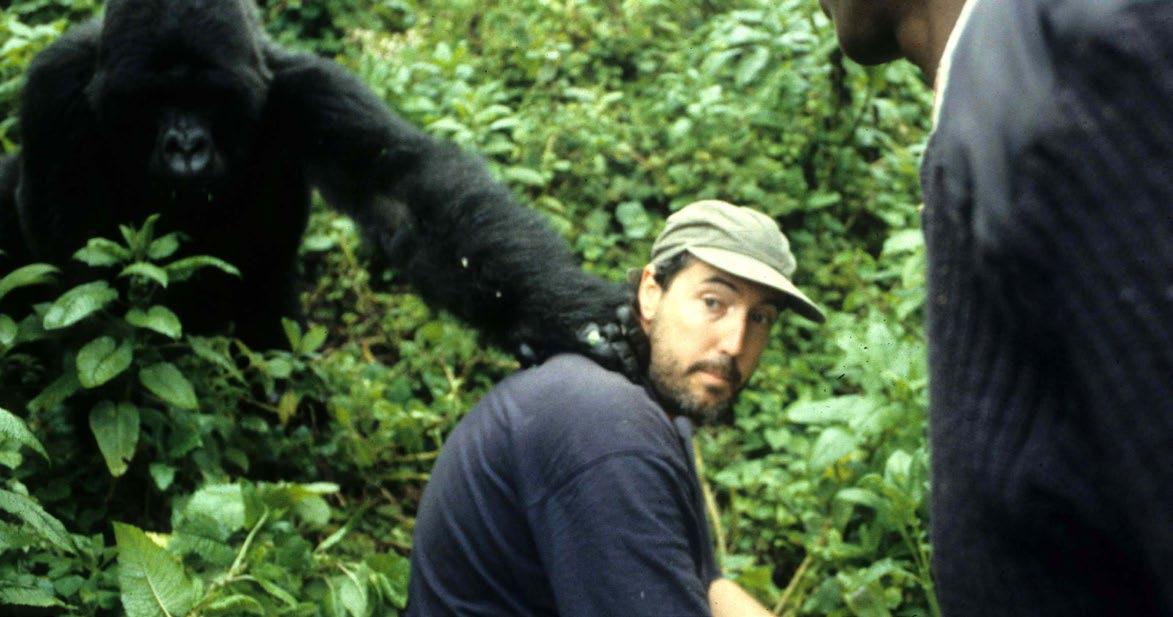
Thisweek’s column is not about a local wildlife hotspot, although it is possible to see ‘lesser great apes’ nearby. My column today is about our family – the Family Hominidae. This week a third of our Year 9 students had their assessment in their Biology course that dealt with the concept of biological evolution and natural selection and which involved fascinating learning about this group of animals.
This course presents an excellent curriculum dealing with Darwinian theory, it’s mechanisms and evidence. I love teaching this course to our students and the students really seem to enjoy it too. Each lesson has loads of questions coming from them about a subject that they find very interesting. One of the most common questions I tend to get is how human beings, or Homo sapiens, fit in to all this.
This invariably results in a fascinating discussion about our family – the family of the great apes, Family Hominidae. With this I always include loads of images and information about our relatives in the Hominidae family which include, two species of Gorilla, two species of Chimpanzees, three species of Orangutan and of course, ourselves.
I’ve made it one of my wildlife missions to see and document all of the great apes of the world and spend time with each in their natural habitat. With one exception, the Bonobo Chimpanzees, I have been able to do just that. The Bonobos, however, are still on my target list!
I’ve been extremely fortunate to have spent time with several Gorilla groups over the years on many occasions. My first trip to see them was in 1994 when I spent time with
the Susa Group which was the exact group Diane Fossey studied and the same group that was also in the epic movie, ‘Gorillas of the Mist’. My time with the Susa group has been immortalized in my slide show famously called, ‘The Gorilla Story’, which by now has been seen by thousands of students over the years. And I have returned to see other Gorilla groups with my family since then as well.
Along with some great experiences with Chimpanzees in Uganda, Tanzania and Rwanda, I’ve been fortunate to have seen all three species of Orangutan in the wild. And just this past summer, I was able to track one of the newest species of primate, the Tapanuli Orangutan, which was formally recognised as a distinct species that evolved as a result of isolation caused by the famous Lake Toba super volcano of Sumatra.
I use our great ape kin as case studies in our Year 9 (and ESS) classes. We learn about isolation, genetic drift, DNA similarities (as much as 98.8% similar in Chimps) and so much more. The students do love to hear the stories and natural history of these amazing animals and I see them become inspiring in real time.
The story of our species is a very rich one and there is so much to learn. Too much to include in a 11-week introductory course in Secondary School. But I know when our students move on in their educational journeys they have been inspired to learn even more about who they are and how they fit into this story.
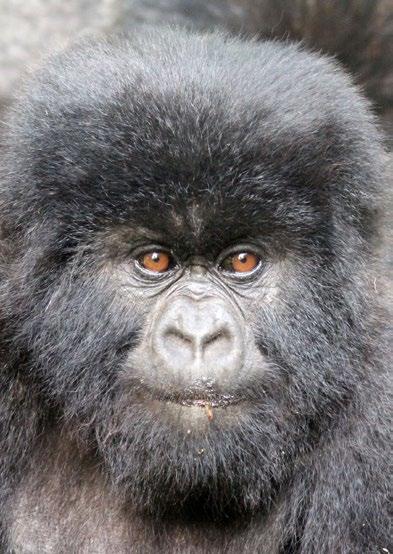
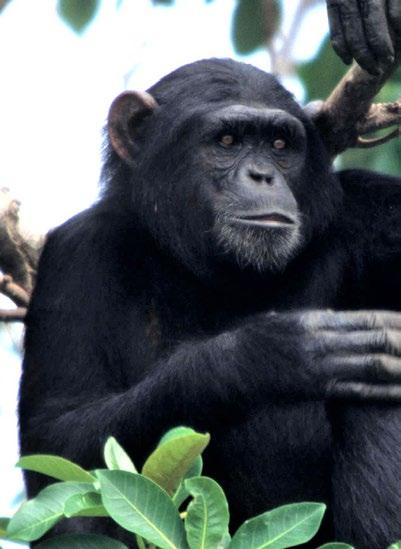
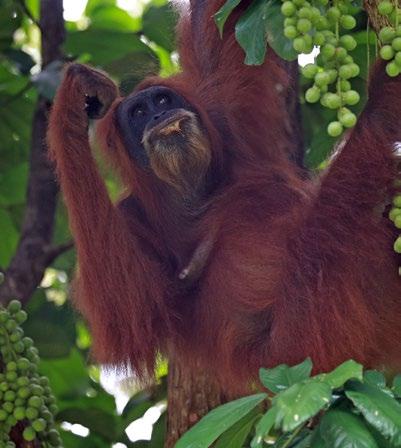

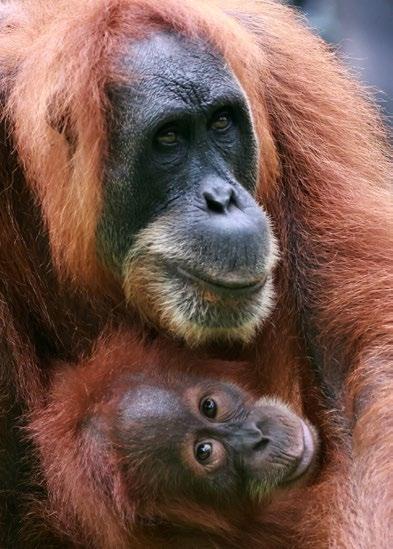
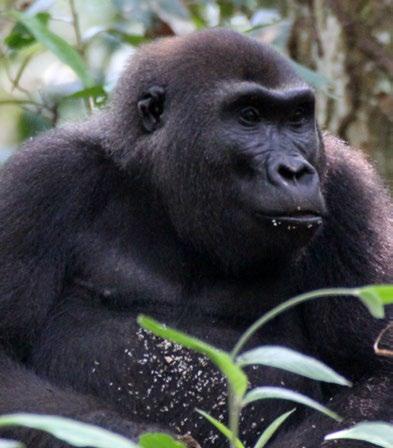
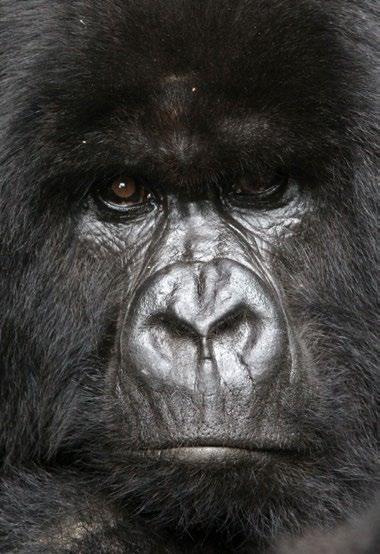
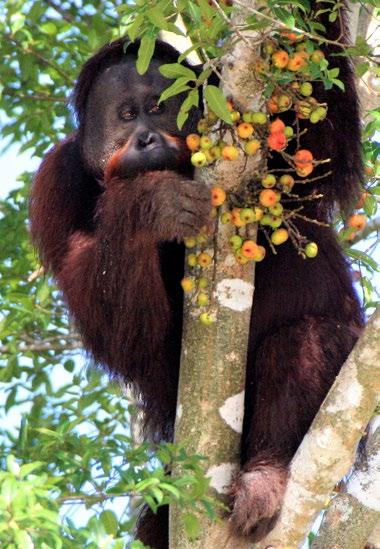
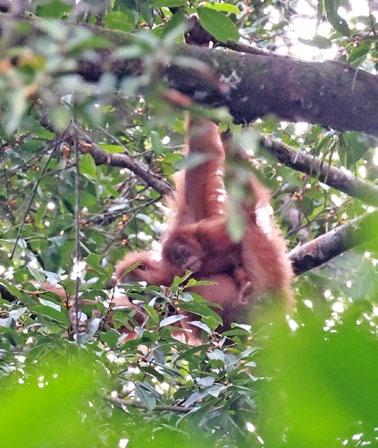
If you require documentation from the School to support visa applications or extensions over the Christmas break, please request this as soon as possible.
Please complete the request form via the Parents’ Gateway allowing 3 working days : Document Request from Admissions (patana.ac.th)
Please note that the last date to submit requests this term will be Monday 9th December 2024. Requests received after this date will be processed from 6th January 2025 onwards.
If you have any questions, please contact parg@patana.ac.th
If your child (Year 9,10 or 11) studies a language outside of school, either a Home Language or a Foreign Language, and would like to consider taking an (I) GCSE exam in that language this academic year, do contact Celine Courenq, Head of Faculty World Languages (ceco@patana.ac.th) before the 6th December.
In your email, please include:
- the full name of your child
- his/her tutor group
- the language they wish to be entered for
- the syllabus code of the exam (for example ‘Cambridge IGCSE ChineseSecond Language (0523)’)
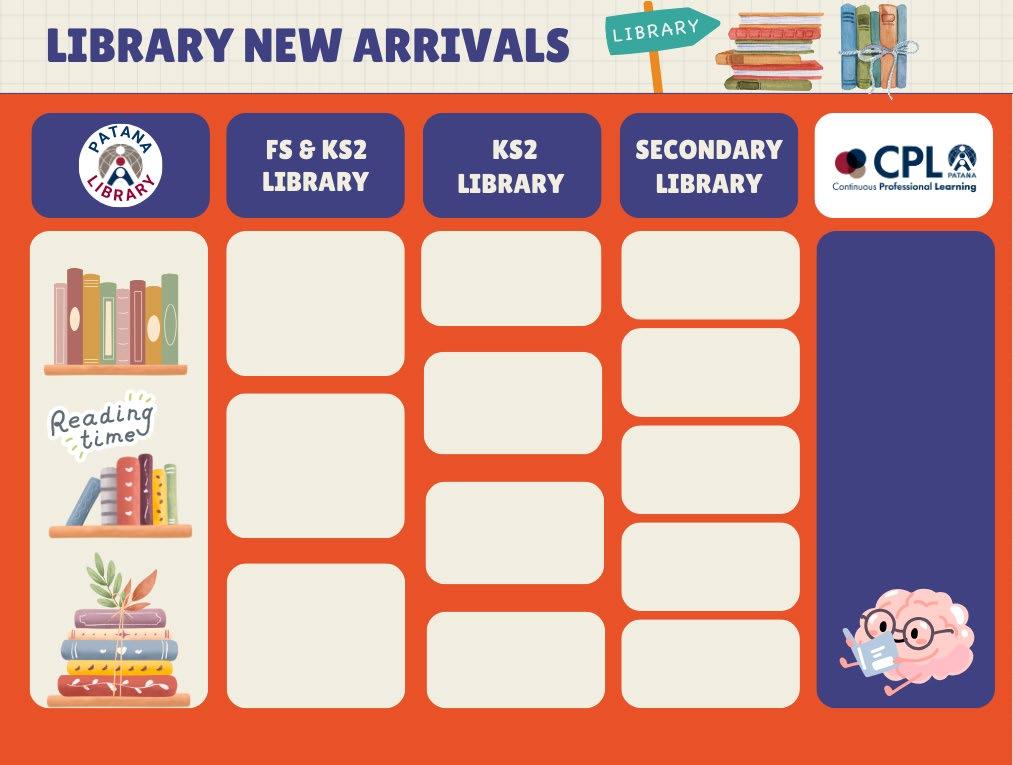
Thitida Leelapanyalert, Parent
On September 29, 2024, Dayton participated in the prestigious South East Asian Mathematical Olympiad (SEAMO), competing in person among thousands of regional participants. We are thrilled to announce that Dayton ranked 14th overall, placing him within the top 8% of competitors across the region.
Dayton’s impressive performance earned him a GOLD award with a local percentile score of 94.35. His outstanding achievement also qualifies him to participate in the SEAMO X 2025 Global Competition, which will be held in January 2025.
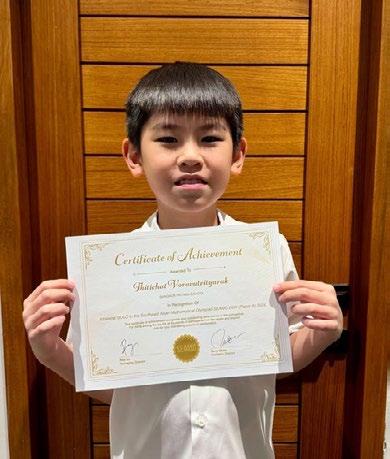

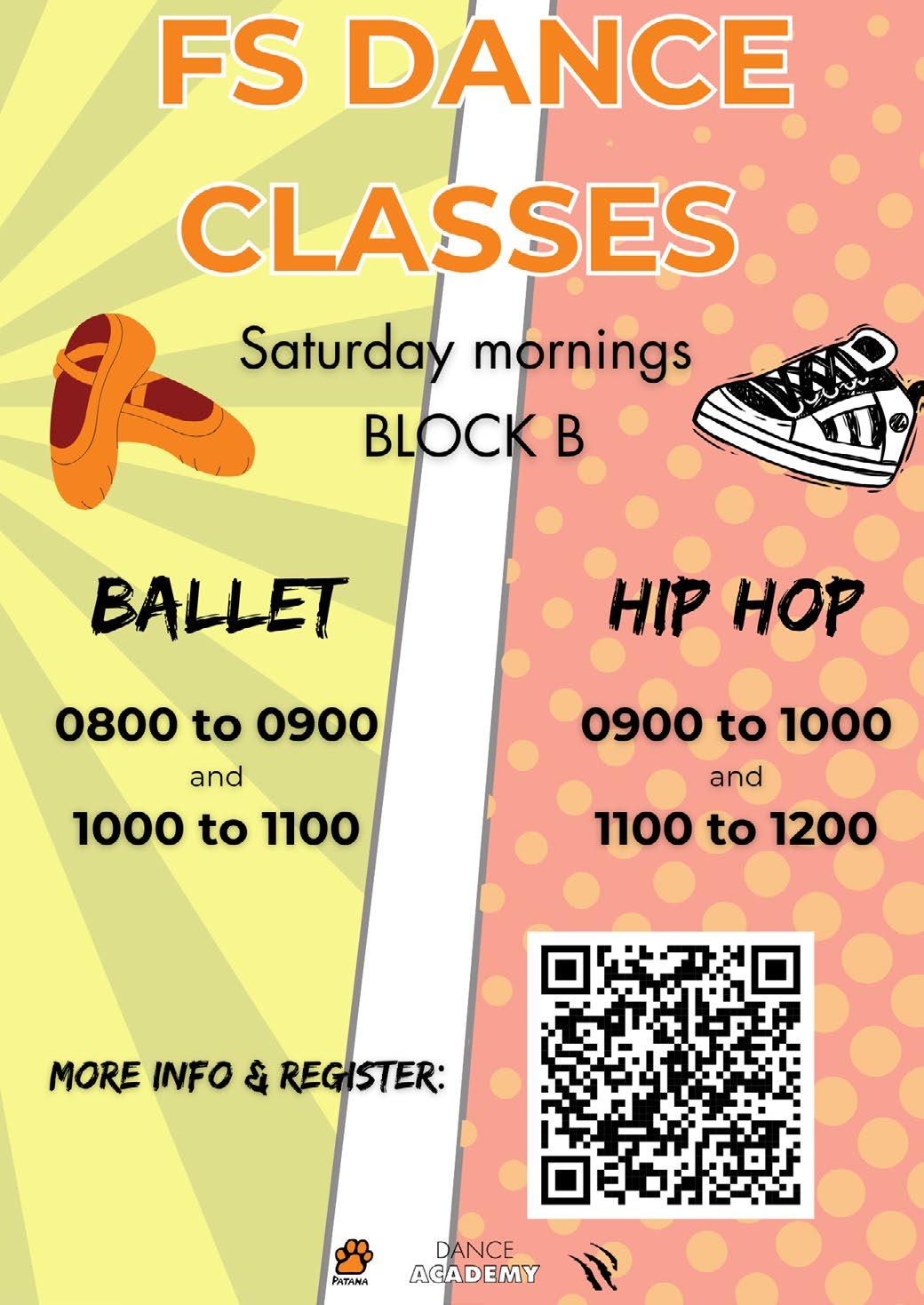



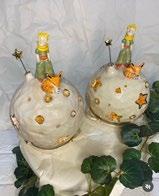
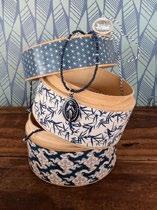






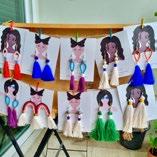

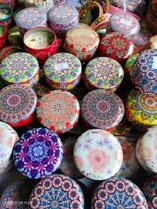
1 2 N o v e m b e r 2 0 2 4 8 a m - 3 . 3 0 p m B a n g k o k P a t a n a S c h o o l Save time at the school entrance - scan & fill out this form beforehand.
(Download the Muvmi app and share a ride from BTS Bearing.)



Christmas gift hunting for local handmade goodies –think fashion, bling, playful toys, and funky home decor! Grab your pals, shop till you drop, and sip on some scrumptious coffee and tasty treats! Get ready for a festive blast!
